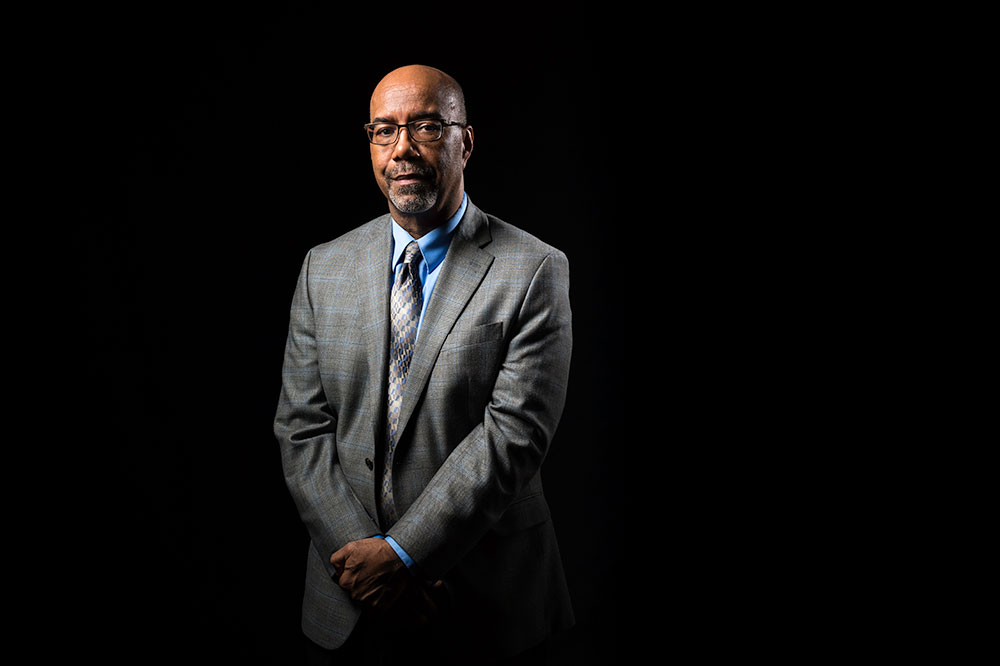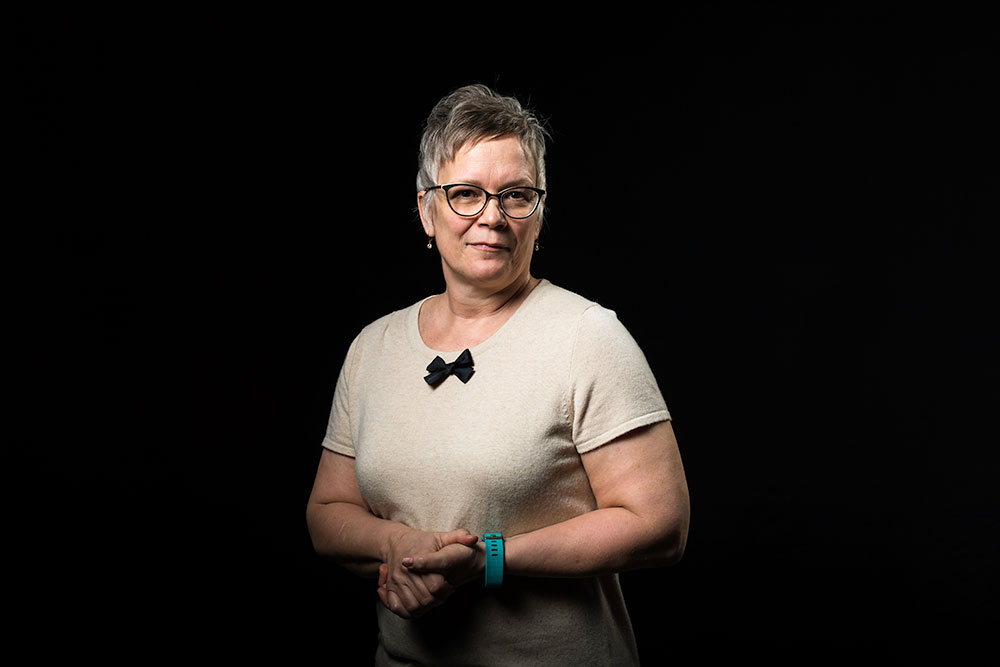Black History Month has been celebrated in the United States each February since 1976 as a time to honor the achievements and central role of African Americans in American history.
But black history itself isn’t confined to one month. As February draws to an end, members of the University of Rochester community offer their thoughts on the ways in which black history is inseparable from American history.
(University of Rochester photos / J. Adam Fenster)
Norman Burnett
Assistant dean and director of the Office of Minority Student Affairs
“Black history is indeed American history, and should be recognized and sustained throughout the year. Since the inception of our imperfect union, black men and women have contributed to the foundational elements of our society—during the wretched system of slavery, the abolitionist movement, the Jim Crow era, the civil rights periods. Black men and women continue to fight for civil rights and social justice in the fields of education, politics, the arts, science and technology, entertainment, and sports. We should celebrate the many and varied accomplishments of all peoples who have made significant contributions to the often painful and amazing history of America. It would be unfortunate to limit our recognition of those contributions to just one month.”
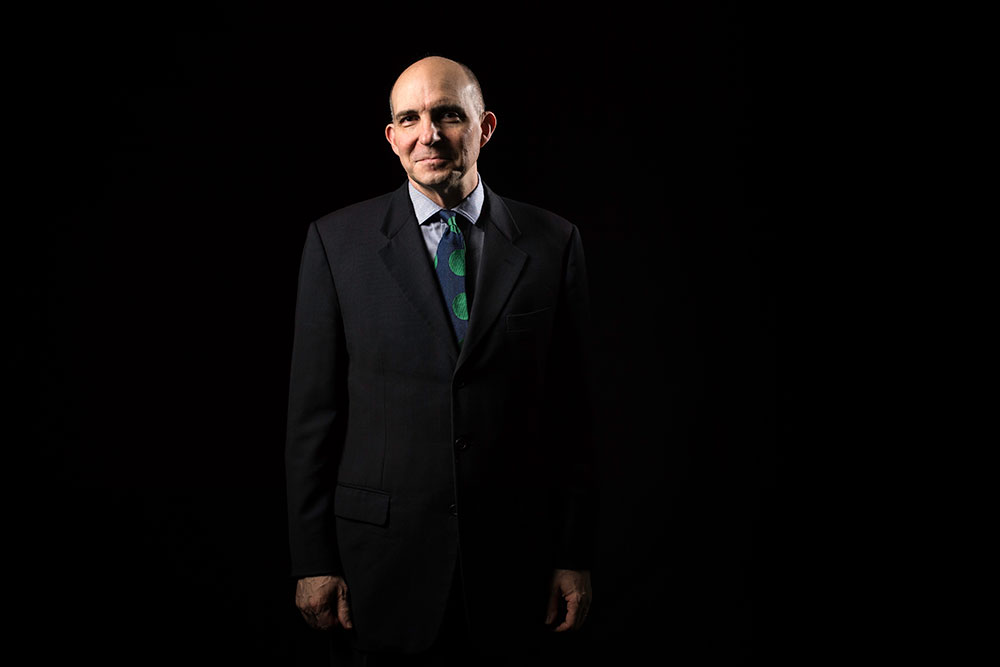
Jeffrey Campbell
Professor of jazz studies and contemporary media at the Eastman School of Music
“As a fellow human being and a jazz musician, to me black history celebrates every day the extraordinary people who created jazz music and the contributions and continued impact on music today.”

Meredith Crenca ’19
Health, behavior, and society and Spanish major
Student coordinator for the We’re Better Than That anti-racism committee
“In many ways, black history is made every single day across the country. Although we devote a month to celebrating it, there is so much history and triumph to celebrate that we really need years to unpack it all, not just a month.”
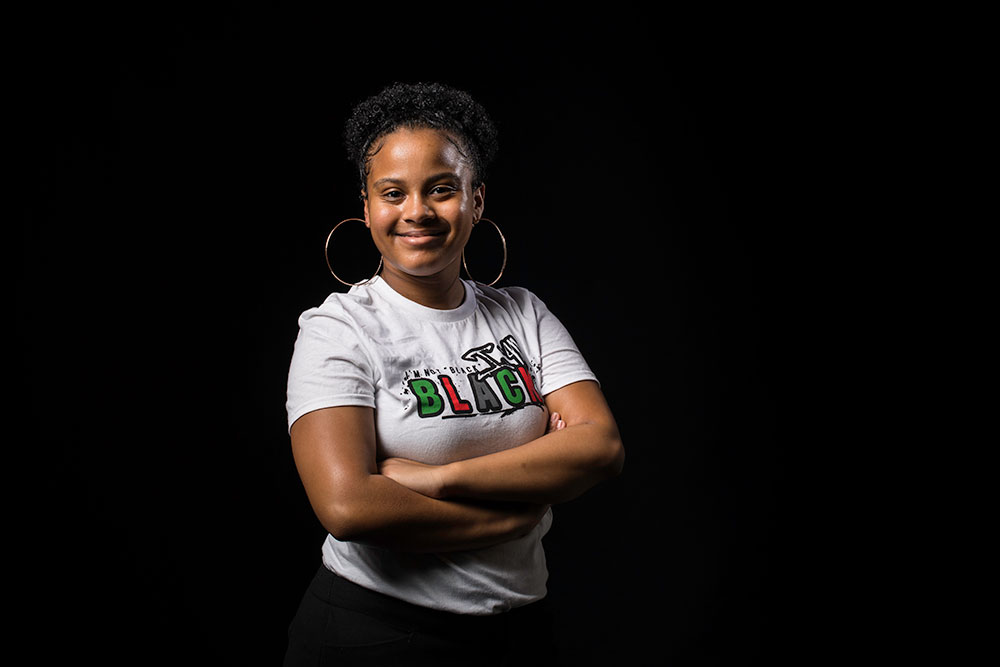
Tara Eagan ’20
African-American studies and economics major
President of the Black Students Union and member of the Douglass Leadership House
“Black History Month embodies the celebration of the living miracles that are black people. We are continuously reminded every single day that all we ever have been is oppressed in America through many different channels including policy, law, microaggressions, economic disparity. For that reason, we have to continue to teach ourselves about the triumphs in our history. We have to continue to teach ourselves that we are truly magical. That takes a whole lot longer than one month!”
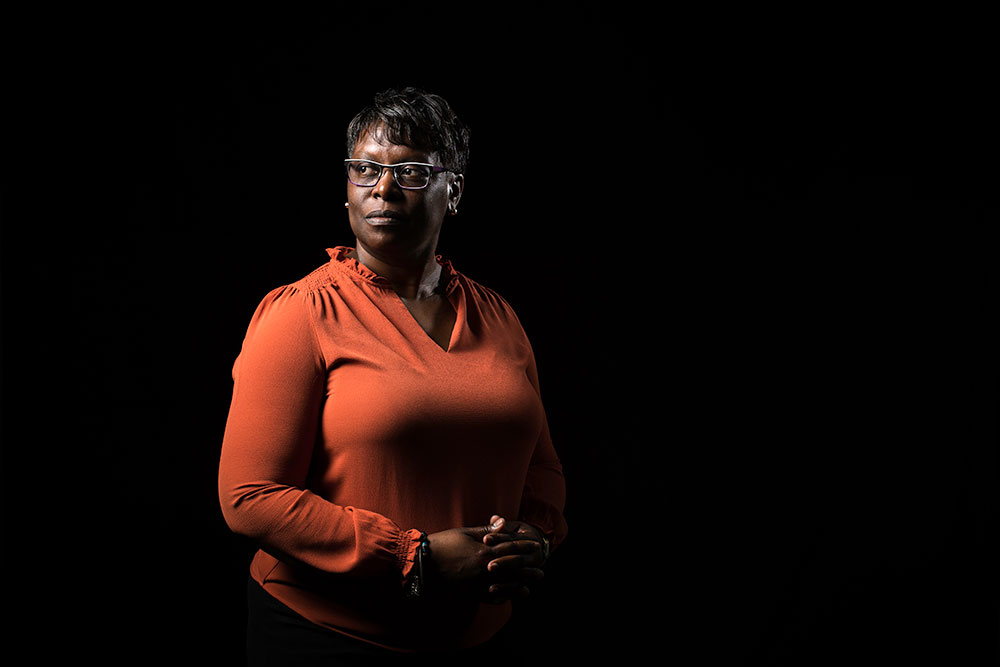
Margarita Guillory
Assistant professor of religion and classics
“Black history is not a monolithic narrative. Instead it is intricately composed of multidimensional histories. Recognition of this complexity is an essential step in combating historical repression and marginalization.”

Jessica Guzman-Rea
Director of the Paul J. Burgett Intercultural Center
“Black History Month extends beyond February because black history is my history. As a Puerto Rican, I am a descendent of African slaves, Taíno Indians, and Spanish colonizers. To know this nation is to know all of its voices. As a mother of mixed [Puerto Rican and black] children I believe it is my duty to educate them on their heritage and to bring to light the voices that were historically silenced.”

Jamal Holtz ‘20
Political science major
Senator in the Students’ Association
“Black history extends beyond February because every day we see black individuals make history, from leading movements to gaining political power. We see people like Barack Obama being the first black president of the United States. We see people like Dr. Dwaun J. Warmack, current president at Harris-Stowe State University in St. Louis, a black male who was the youngest-ever serving president of a college. Seeing graduation rates go up within the black community. Lastly, seeing people like Sean Combs being the number one wealthiest celebrity in 2017. Today’s present is tomorrow’s history.”
Beth Olivares
Dean for diversity
“Too often, the successes and challenges of people of color, women, and other marginalized peoples don’t get told as part of the American narrative, or are told only as sidebars to the ‘real’ story. But American history is the story of all American people, and we all lose when the accomplishments and setbacks of black people are left out. While it’s kind of silly to limit celebrating the accomplishments of black Americans to one month, ensuring the purposeful inclusion of these stories at all times and in as many domains as possible can help to undo some of the damage of revisionist, exclusionary history. This country was built with the blood, sweat, and tears of many black and brown people, who worked alongside, and for a long time, under the lash of, their white peers. It’s a human trait to want to downplay the more unpleasant aspects of our personalities, and to ignore or sidestep the negative impacts our actions have on others, whether intended or unintended. Yet the only way to truly come to terms with our racial past and present is to confront it directly. Then we might finally be able to authentically celebrate American history as the rich multi-faceted tapestry it truly is.”

Miles Perry ’20
Public health and international relations majors
President of the Pride Network and No Disclaimers
“Black History Month doesn’t give me immunity from discrimination, the prison pipeline, the skewed justice system, housing discrimination, police brutality, or gentrification. Black people working to end these oppressions make black history every day of every month.”

Orin Troyer ’18
International relations major
Vice president of the Minority Student Advisory Board
“Black History Month celebrates the contributions of black people to this nation, and the greater society. However, educating one’s self on the history of black people should not be limited to the month of February. Many Americans are unaware of the diversity within the black community, or the varying experiences of what it means to be an African American, Caribbean American, or an African living in America. The black experience is multidimensional, and being black does not equate to being African American. Blackness does not begin and end with America. The diaspora is diverse.”


